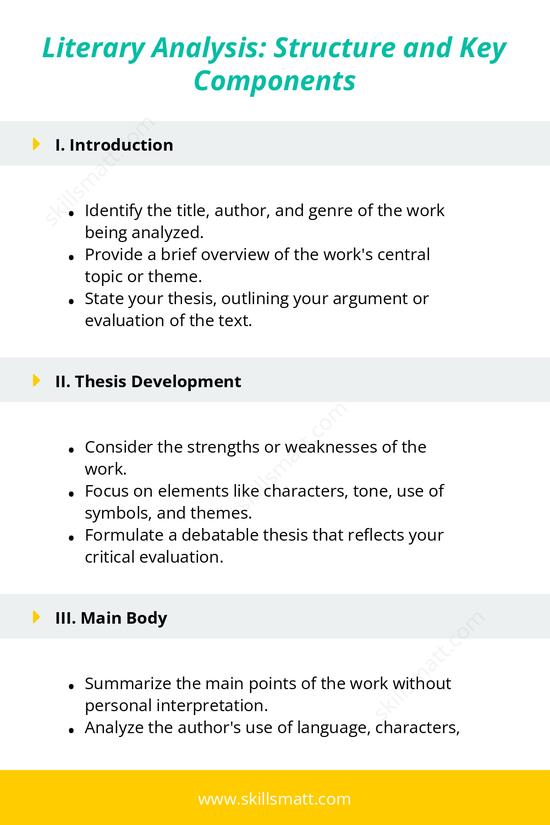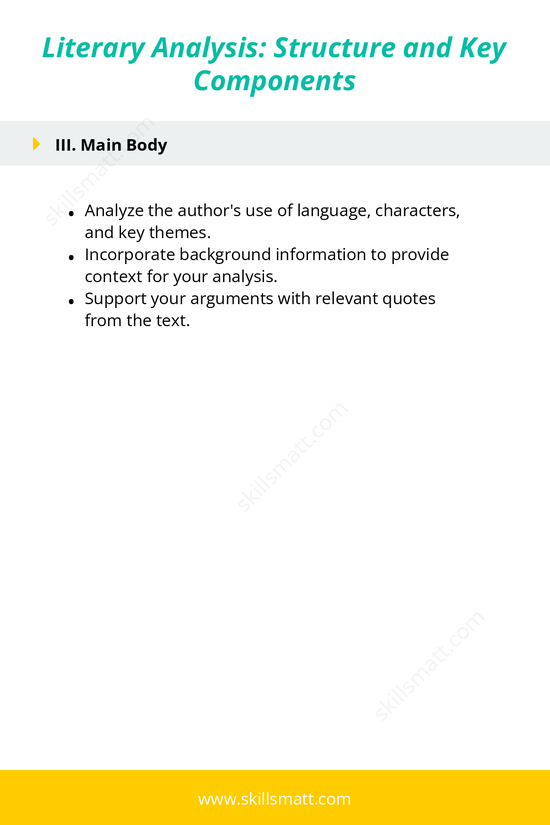Literary Analysis: Structure and Key Components
I. Introduction
- Identify the title, author, and genre of the work being analyzed: Begin by providing the basic information about the work you're analyzing.
- Provide a brief overview of the work's central topic or theme: Offer a concise summary of the themes or main focus of the text.
- State your thesis, outlining your argument or evaluation of the text: Present a clear thesis statement that indicates your perspective on the work.
II. Thesis Development
- Consider the strengths or weaknesses of the work: Evaluate key elements of the work such as plot, characters, and writing style.
- Focus on elements like characters, tone, use of symbols, and themes: Examine how these elements are presented in the text and their impact on the overall meaning.
- Formulate a debatable thesis that reflects your critical evaluation: Develop a thesis that provides a clear position on the text, which you will argue in the body of the essay.
III. Main Body
- Summarize the main points of the work without personal interpretation: Provide a neutral summary of the key points of the work without inserting your personal opinions.
- Analyze the author's use of language, characters, and key themes: Critically assess how the author’s style and thematic choices impact the overall message of the work.
- Incorporate background information to provide context for your analysis: Offer relevant background information on the author or historical context to enhance your analysis.
- Support your arguments with relevant quotes from the text: Use direct quotes from the text to strengthen your analysis and illustrate your points.
IV. Conclusion
- Summarize the main points discussed in your analysis: Review the key points of your analysis and how they support your thesis.
- Restate the thesis in light of the evidence and analysis presented: Reinforce your thesis by demonstrating how the evidence presented validates your position.
- Offer a broader statement or final thought that encourages further reflection on the work: End with a thought-provoking idea or question that leaves room for deeper reflection on the work.


